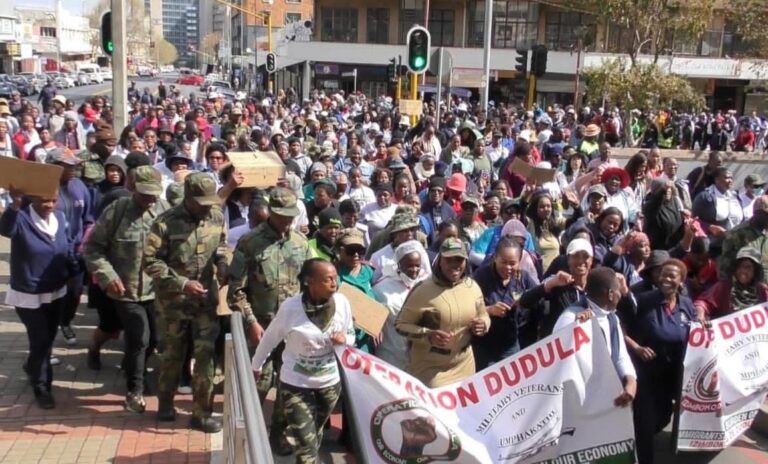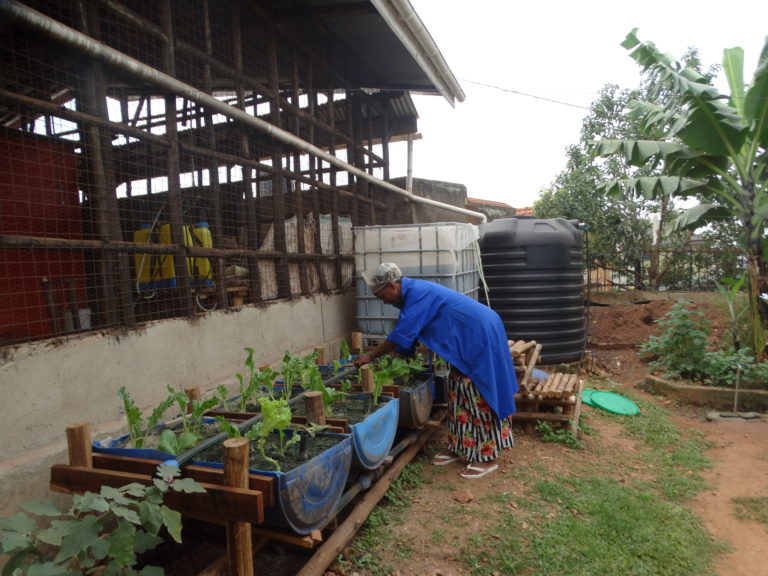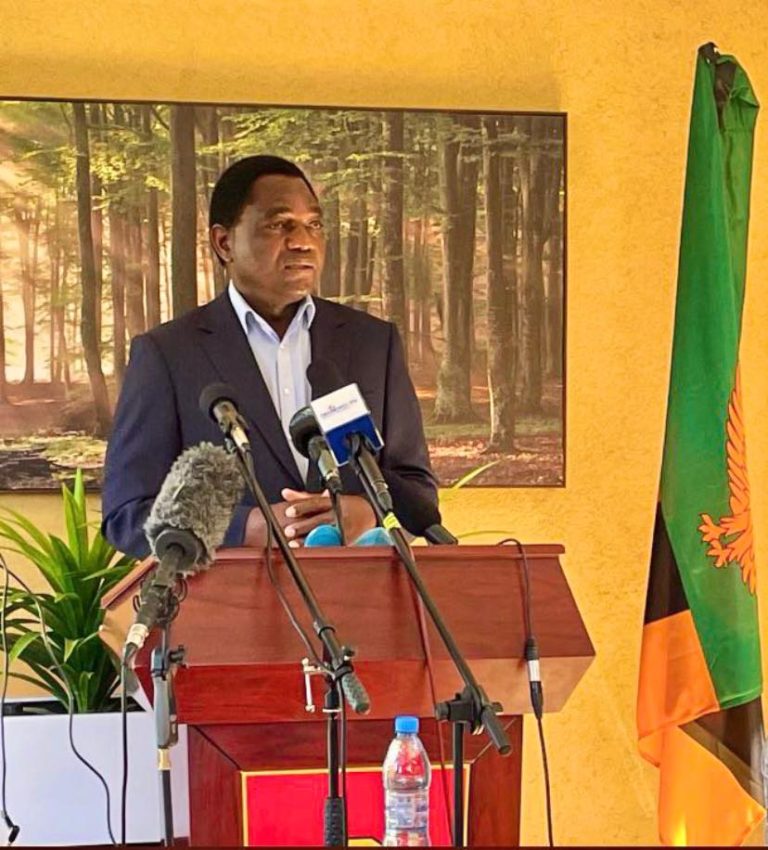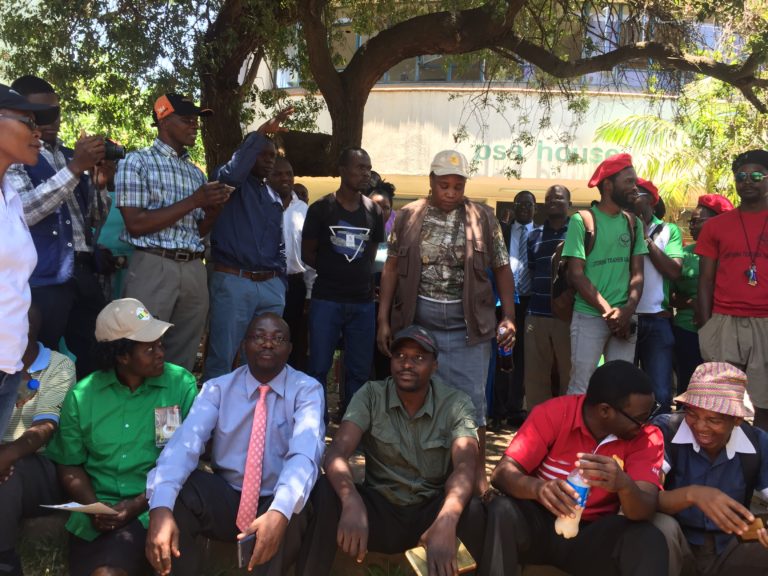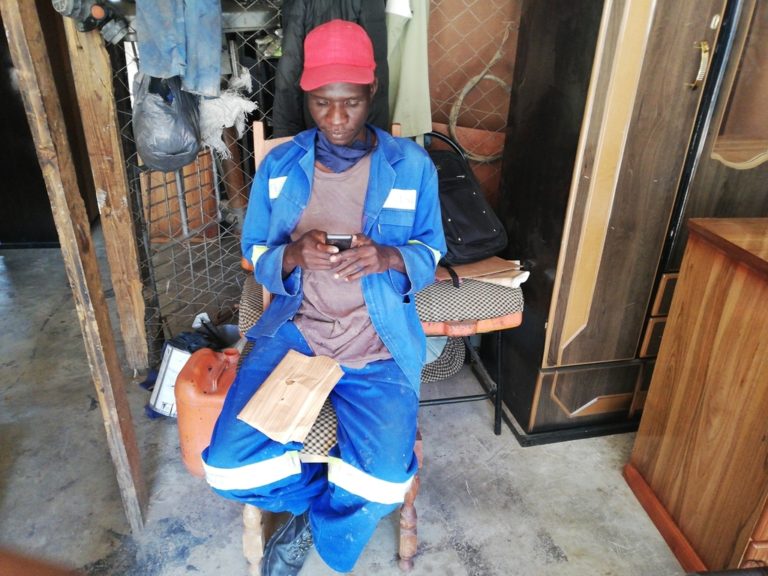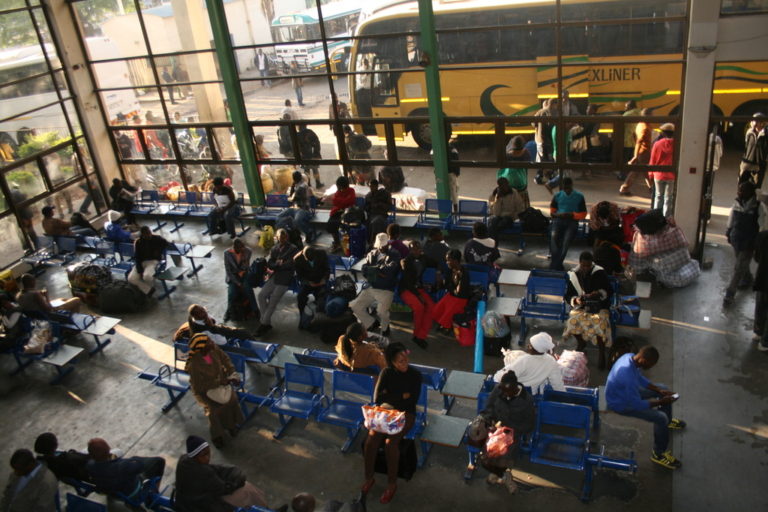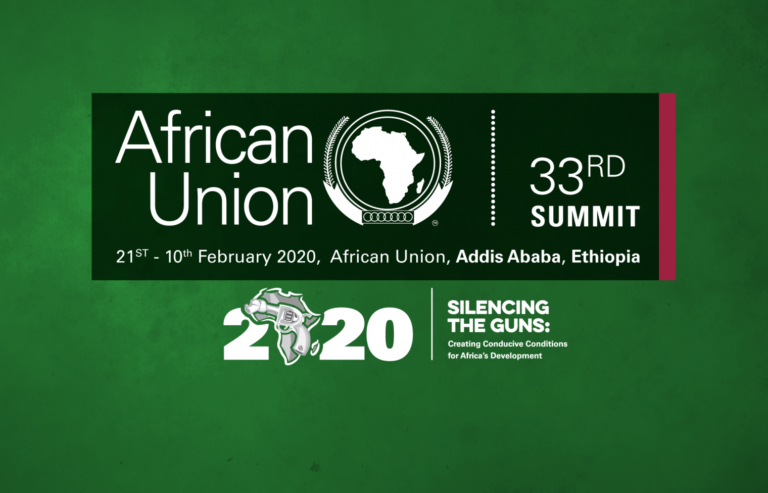There is no direct translation for the word Dudula in the English language, but the president of the organization that started off as a ‘clean-up campaign’ to directly confront the scourge of crime and drugs by ‘illegal immigrants’ in South Africa says it means ‘push-out’ or ‘more force’.
Zandile Dabula is the President of Dudula, a movement that came into the mainstream of South African politics for its unorthodox stance against ‘illegal immigrants’ in South Africa.
During the 2021 July uprisings, Dudula was led by Nhlanhla Lux Dlamini, a 37-year-old activist who has since distanced himself from the group.
Speaking to Ubuntu Times, President of Operation Dudula, Zandile Dabula, said the civic organization resolved at a consultative conference held on May 17, 2022, to transform itself into a political party and contest the country’s presidential and national assembly elections slated for next year.
She accuses the mainstream media of portraying the party in a negative light following a story by the BBC that has garnered thousands of views since it aired on September 19, 2023.
“We know mainstream media is biased; they do not cover everything we do. We placed South African citizens back into RDP houses; we have placed South Africans in jobs. We have our in-house media; we have people in Africa who want to have operation Dudula’s,” Dabula informed Ubuntu Times.
Reconstruction and Development Programme (RDP) was a South African socio-economic framework implemented by the ruling African National Congress (ANC) to deal with the country’s most pressing challenges just after the 1994 elections.
The program built houses for citizens (referred to as RDP houses) in the low-income strata; however, these citizens are said to have sold the houses to foreigners (at give-away prices), and Dudula is helping to get them back. However, the group is known more for its “anti-foreigners stance” and “vigilante” antics. Dabula says those who label the party as anti-foreigner vigilantes are not looking at the party’s activities in their entirety.

“South Africa is a welcoming country, but I need to have a passport or a visa to enter, and because our home affairs ministry officials are bribed at the borders, anybody can come in, and this has led to all sorts of crimes which we’re not used to seeing before,” she told Ubuntu Times.
“Nigerians specialize in drugs and body parts; Zimbabweans are robbers and steal jobs. They will kill you! Malawians, they are human traffickers, and they are also being trafficked, being used as slaves by the Pakistanis. They also kill; to be honest, we always see them coming without documents,” Dabula said.
Nhlanhla ‘Lux’ Dlamini came to prominence in the international media landscape as a leader of Operation Dudula during a period of looting and violence that was sparked by the arrest of former president Jacob Zuma on a contempt of court conviction. These protests were similar in veracity and magnitude to the George Floyd protests in the United States of America a year earlier.
“When South Africa went through the July unrest, I was the leading commander that stopped the looting when the police failed. I was engaged to say, you must come, and we protected the malls,” Dlamini explained.
Unbeknownst to many, Dlamini has been the President of the Soweto Parliament for the past ten years and has dedicated his early adulthood to civic engagement in the township, which has an estimated population of 1.8 million inhabitants.
The Soweto Parliament is a community leadership structure that seeks to address issues affecting Soweto residents, such as unemployment, crime, and lack of access to basic services such as electricity.
Dlamini told Ubuntu Times that he has distanced himself from the activities of Operation Dudula due to ideological differences and the organization’s way of doing things. He said he has dissociated himself from Operation Dudula because the movement had deviated from its objective of addressing the issue of undocumented workers who were competing for economic spaces with South Africans in areas deemed not to be needing skills, such as the restaurant business.
“The law states that only foreigners with special skills should be absorbed in the economy where we need them, and the low-entry jobs on the lower part of the economy that do not require special skills should be reserved for the citizens that need jobs… We are talking about the country with one of the highest unemployment rates in the world, and so we were addressing that, and I was happy to associate myself with that cause, but when it started to be out of control…, I had to leave,” Dlamini explained.
“When they (Dudula) publicly came out and said all foreigners, I said nonsense. I can never fight all foreigners; I am fighting the foreigners who are undermining the laws of the country. I had to leave them when they began fighting all foreigners,” Dlamini elaborated.
On the issue of the role South Africa can play on the continent to address the issues that push migrants from their home countries to South Africa Ndlamini said the problems of South Africa’s neighbors are the problems of South Africa and urged the South African government to play a greater role in addressing peace and security on the continent.
“The problem is that governments might be on a certain level of communication, but the average person in the country does not understand or comprehend that level of communication.” The former leader of Operation Dudula before it transformed into a political party noted to Ubuntu Times that governments should be able to communicate and work together with other countries to follow the laws of migration to South Africa.
Regarding the negative stereotypes Zandile Dabula, the President of Operation Dudula, attributed to nationals from Nigeria, Zimbabwe, and Malawi, Ndlamini said he does not agree with such stereotypes because crime cannot be generalized.
“Crime is crime; you must deal with crime. Once you start generalizing crime and making it a nationality, that means you do not understand policing and you do not understand crime because most Nigerians don’t sell drugs; you’ve got a minority of Nigerians that sell drugs,” Ndlamini warned.
“We fight when white people say black people are thieves. We want to fight! We want to fight, but when black people in South Africa say Africans are WHAT! WHAT! Then it’s not a problem. We can’t be two-faced; we must be fair all the time. We can’t say Nigerians sell drugs because not all Nigerians sell drugs. That is why I cannot agree with Zandi, Dudula, or anyone when they say that Mozambiquens do this and Zimbabweans do that. Criminal do 1, 2, 3, you can’t say entire nationals like that, you can’t,” Dlamini vehemently cautioned.
South Africa is Africa’s second-largest economy, with an estimated GDP of US$399 billion, based on a 2023 World Bank report.
According to the 2022 South Africa Department of Statistics census report, the country has an estimated population of 55.7 million people.
However, the country also has a significant number of illegal migrants, which then places the number of immigrants higher, and this is a concern for activists and politicians like Dabula and Dlamini.
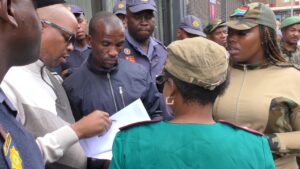
A South African journalist who chose to be anonymous informed Ubuntu Times that many people migrate to South Africa looking for the ‘dream’ but the reality is that resources are few and migrants are sometimes forced into a life of crime in order to be able to fend for themselves.
“Everybody is fighting for space, a slice of the pie. If the economy can grow and the pie can become larger, there will be more for everyone to share,” the journalist stated to Ubuntu Times.
The journalist further informed Ubuntu that some of the solutions to South Africa’s problem of illegal immigrants include tighter border control and South Africa playing a greater role on the continent in exercising its power to facilitate peace and security on the continent.
“South Africa’s policy is peace through negotiation, and like our President Cyril Ramaphosa said, the billions spent on wars can be used on development, but I also think South Africa has to focus more inwards when it comes to making lives better for South Africans,” the journalist emphasized.
Although they differ ideologically, Zandile Dabula and Nhlanla ‘Lux’ Dlamini seem to hold similar views on mainstream media, which they accuse of being biased and misrepresenting Operation Dudula in a negative light to fit the narrative they are trying to sell to their audiences.
“We know mainstream media is biased, and they do not cover everything we do,” Dabula lamented. Dlamini mentioned that the media does not uphold the ethics it should and has intentionally distorted his image in public by portraying him as a xenophobic vigilante when that is not who he is.
“I am well-traveled and have worked with Africans from all over the continent. I once asked a journalist what the word vigilante means, and they could not explain the meaning of the word, but that same time, the journalist was referring to me as a vigilante.
“Everything I did during my time with Operation Dudula has been within the confines of the law. The South African constitution allows citizens’ arrest, and that is what we were doing: arresting people for crimes and bringing them to the police so they can be dealt with. I am no longer with Operation Dudula, so I cannot speak on their behalf, but I do not agree with some of the things they are currently doing,” Nhlanla Dlamini concluded.

